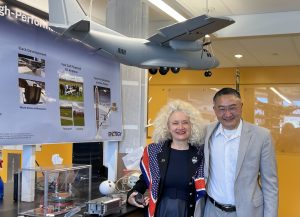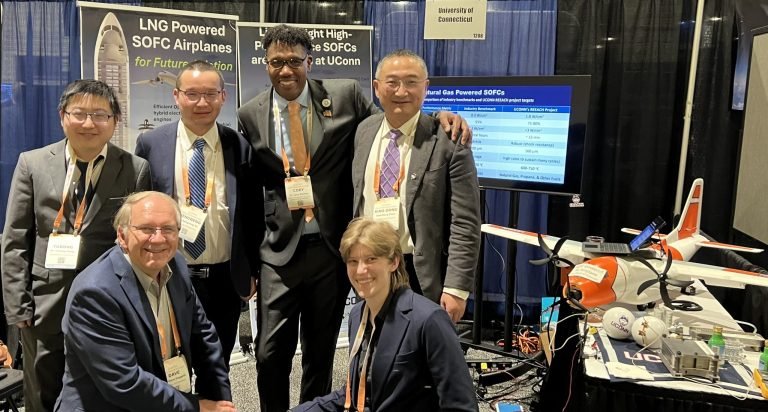What if the future of aviation didn’t run on jet fuel combustion—but clean, compact electricity?
That’s the vision propelling a team of engineers from the @University of Connecticut, who presented their cutting-edge solid oxide fuel cell (SOFC) technology at the 2025 ARPA-E Innovation Summit. Led by Prof. Xiao-Dong Zhou, the team is making waves by designing lightweight, efficient fuel cells tailored for next-gen aircraft.
What’s the Big Deal About SOFCs?
SOFCs are not new—but applying them to aviation is a game-changer. Unlike traditional fuel cells, these high-temperature units convert fuels like jet fuel, natural gas, or propane directly into electricity with minimal energy loss. That means longer flight ranges, lower emissions, and better energy efficiency—all without the weight constraints of large battery systems.
This work is part of the $5M REEACH program backed by ARPA-E and the U.S. Department of Energy, aiming to redefine aircraft propulsion through clean energy.
Why Does This Matter Now?
As airlines, defense contractors, and regulators look toward net-zero aviation, technologies like SOFCs could fill a critical gap. Batteries are too heavy for long-range commercial flights, and traditional combustion engines are too dirty for a sustainable future.
Enter UConn’s prototype: a lightweight fuel cell platform optimized for aviation. Not only does it promise a cleaner flight path—it extends operational range, a huge plus in both commercial and military applications.
What Was the Reaction at ARPA-E?
Excitement was high. Megan Cunningham (’24), one of the UConn team members, described the summit as “an engineer’s Disney World.” Surrounded by innovation leaders from academia and industry, UConn’s presentation stood out as one of the most promising clean aviation technologies in development.
From propulsion to sustainability, the crowd could see what’s coming: fuel cells might be the bridge between today’s jet engines and tomorrow’s zero-emission skies.
What’s Next?
The project is still in development, but momentum is building. With federal backing, growing industry interest, and a strong academic foundation, UConn’s fuel cell tech may soon be tested in flight scenarios. The team is also exploring ways to integrate their system into hybrid aviation platforms—pairing SOFCs with lightweight battery storage for peak performance.
This is clean energy engineering at altitude—and the runway is just getting started.
Source: University of Connecticut



 Share your Details for subscribe
Share your Details for subscribe